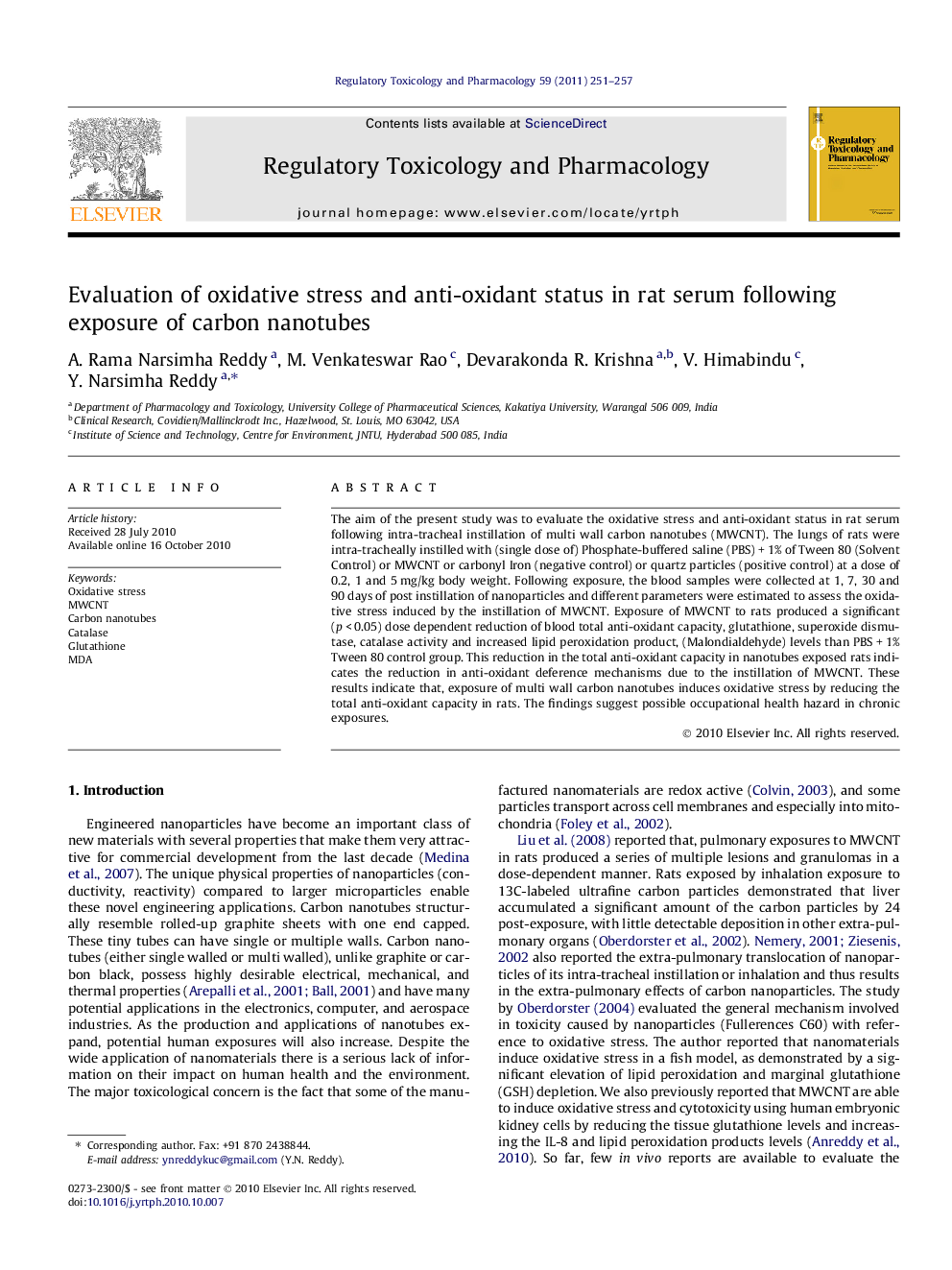| Article ID | Journal | Published Year | Pages | File Type |
|---|---|---|---|---|
| 5857725 | Regulatory Toxicology and Pharmacology | 2011 | 7 Pages |
Abstract
The aim of the present study was to evaluate the oxidative stress and anti-oxidant status in rat serum following intra-tracheal instillation of multi wall carbon nanotubes (MWCNT). The lungs of rats were intra-tracheally instilled with (single dose of) Phosphate-buffered saline (PBS) + 1% of Tween 80 (Solvent Control) or MWCNT or carbonyl Iron (negative control) or quartz particles (positive control) at a dose of 0.2, 1 and 5 mg/kg body weight. Following exposure, the blood samples were collected at 1, 7, 30 and 90 days of post instillation of nanoparticles and different parameters were estimated to assess the oxidative stress induced by the instillation of MWCNT. Exposure of MWCNT to rats produced a significant (p < 0.05) dose dependent reduction of blood total anti-oxidant capacity, glutathione, superoxide dismutase, catalase activity and increased lipid peroxidation product, (Malondialdehyde) levels than PBS + 1% Tween 80 control group. This reduction in the total anti-oxidant capacity in nanotubes exposed rats indicates the reduction in anti-oxidant deference mechanisms due to the instillation of MWCNT. These results indicate that, exposure of multi wall carbon nanotubes induces oxidative stress by reducing the total anti-oxidant capacity in rats. The findings suggest possible occupational health hazard in chronic exposures.
Related Topics
Life Sciences
Environmental Science
Health, Toxicology and Mutagenesis
Authors
A. Rama Narsimha Reddy, M. Venkateswar Rao, Devarakonda R. Krishna, V. Himabindu, Y. Narsimha Reddy,
